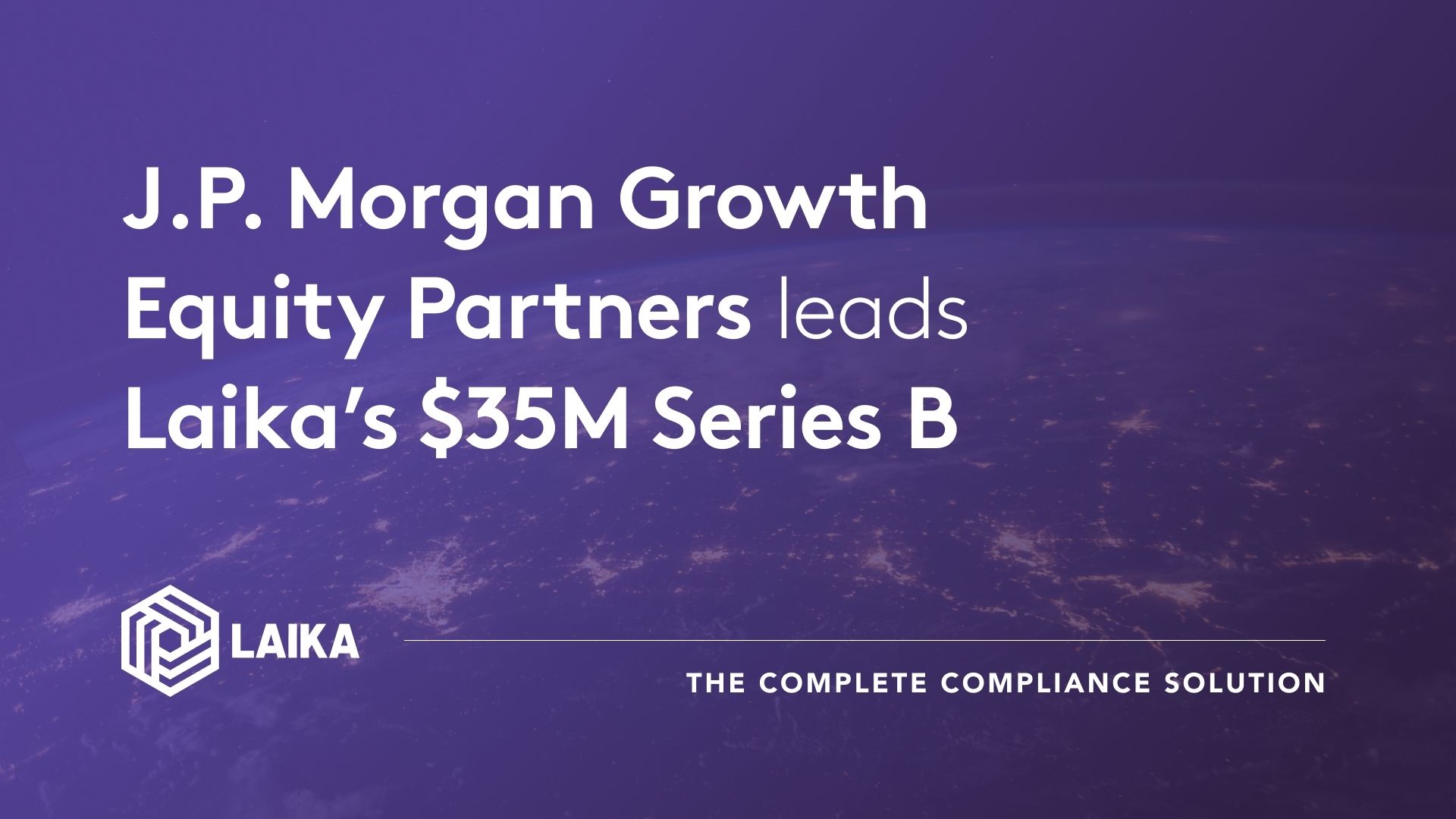| | | | | | | Presented By Laika | | | | Axios Markets | | By Kate Marino ·Nov 05, 2021 | | 🥳 Good morning and happy Friday! ☀️ Don't forget to enjoy the evening sunlight this weekend! We won't see it again till March... (thanks, daylight saving time). 🚨Situational awareness: The October jobs numbers are out this morning at 8:30 ET. Economist estimates are for about 400,000 new jobs created, compared to 194,000 in September, according to FactSet. 📫 Today's newsletter is 1,044 words, 4 minutes. | | | | | | 1 big thing: The wait on rates |  | | | Illustration: Aïda Amer/Axios | | | | Federal Reserve chair Jerome Powell delivered precisely the tapering news that the financial world expected at his Wednesday press conference — but when it comes to interest rates, central banks around the globe are serving up some surprises. Catch up quick: Central bankers for some of the world's biggest economies presented more dovish messaging than markets had expected, appearing to tilt in favor of lower-for-longer rate policies. - Bank officials plainly pushed back on the market's expectations, which had been evident in rapidly rising sovereign bond yields heading into this latest round of policy meetings.
Why it matters: The bankers signaled they aren't yet worried about the possibility of long-term runaway inflation. - "For the major central banks, this past week was supposed to be the beginning of the end of the pandemic-era policies. But what we got, was just more 'wait and see'," Jeff Kleintop, chief global investment strategist at Charles Schwab, tells Axios.
Details: The biggest surprise came from the Bank of England, which on Thursday kept its key rate at 0.1%. That's after numerous bank officials stoked market forecasts for months by hinting that it may be time to raise. - The European Central bank's Christine Lagarde rebuffed the idea of even hiking rates next year.
- The Reserve Bank of Australia kept its bond purchasing program in place, kept rates steady, and said it still may not hike rates before 2024. After its bond yields went dramatically higher, the RBA deliberately tried to tamp down market enthusiasm for an early rate hike, says Daniela Mardarovici, co-head of U.S. multisector fixed income at Macquarie Asset Management.
Stateside, the market had increasingly signaled that rate hikes could come as soon as mid-2022 — but during his Wednesday speech, Powell punted on the issue. He said liftoff wasn't even discussed at the Fed's committee meeting. - In the day or so after the speech, Treasury yields retreated.
The big picture: "The message here is that policymakers are not afraid to push back against market expectations, even after they made some hawkish comments," Kleintop notes. - And while central banks are less convinced than they were earlier this year that inflation will be quick to fade — they're also signaling that they don't think raising rates now is the antidote for what's driving prices higher, he adds.
What we're watching: The timing. If the world's major economies all begin tightening around the same time, it could lead to liquidity pressures or some level of sell-off in risk assets, Mardarovici says. |     | | | | | | 2. Catch up quick | | Peloton, the one-time pandemic-economy favorite, slashed its 2021 revenue forecast by as much as $1 billion and said it had underestimated the impact of economic reopenings. Shares fell 30% in after-hours trading. (Bloomberg) The White House is asking Democratic senators to meet with Federal Reserve chair Jerome Powell before Thanksgiving — leading some to believe President Biden will renominate him this month. (Axios) China's government bonds rose and yields declined after the People's Bank of China on Friday boosted its liquidity injection into the market for the second time this week. (Bloomberg) |     | | | | | | 3. From the picket line to the bottom line |  | | | Illustration: Aïda Amer/Axios | | | | The latest nugget from earnings season: Worker strikes across the U.S. are starting to hit big companies' bottom lines, Axios' Erica Pandey writes. Driving the news: Kellogg warned on its Thursday call that annual profits could take a hit due to sustained worker strikes at its cereal plants. - The plants aren't operating at full capacity thanks to the strikes, and to the difficulty finding temporary labor. Those disruptions, combined with input cost inflation, could dampen profits.
- Kellogg workers are extending their month-long strike after rejecting the company's most recent pay and benefits offer on Wednesday.
Meanwhile, Deere & Co. workers — part of the biggest pandemic-era worker strike, 10,000-strong — are also continuing their work stoppage after rejecting their employer's latest attempt at a deal with the United Auto Workers union. - That deal, which would have poured an additional $3.5 billion into pay and benefits, is Deere's best and final offer, the company said.
State of play: Deere managed to bring a lot more workers on board with its latest proposal. While 90% of workers rejected the company's first offer, 55% voted against the second one. - The company needs a simple majority to reach a deal with the UAW — and aims to chip away at the holdouts in the days and weeks to come.
The bottom line: Workers have more power for now, but continued strikes are hurting both sides, with employees losing wages and employers seeing dents in their profits. |     | | | | | | A message from Laika | | Laika announces $35M Series B | | |  | | | | Laika raised $35M led by J.P. Morgan Growth Equity Partners and participation from PayPal Ventures, Bain Capital Ventures, Canapi, Dashfund, Nyca, and ThirdPrime. Why it's important: Laika's compliance-as-a-service solution helps companies build trust through verifiable compliance. Learn more | | | | | | 4. Tiger-style VCs on the prowl |  Data: Silicon Valley Bank; Chart: Axios Visuals In the venture capital world, nontraditional, index-like investors such as Tiger Global Management and Insight Partners have made headlines for their aggressive investing into startups — and new data shows just how much faster they've been deploying capital, Axios Kia Kokalitcheva writes. The big picture: These investors' playbook involves funding as many startups as possible and hoping for the best, as opposed to the traditional method of a more concentrated portfolio and deep diligence. Zoom in: This group's capital deployment was pretty much on par with the most active traditional VCs in late 2020. But starting at the beginning of this year, they really picked up their pace, as the latter group decelerated, a new report from Silicon Valley Bank shows. |     | | |  | | | | If you like this newsletter, your friends may, too! Refer your friends and get free Axios swag when they sign up. | | | | | | | | 5. 🌾 1 commodities thing: Dough for dough |  Data: FactSet (CBT continuous contract); Chart: Thomas Oide/Axios The cost of pizza and pastries is on the rise. Wheat prices have climbed to an eight-year high as inclement weather has damaged a wide swath of the world's crop. The big picture: Global protectionism plays into this as well. - China holds much of the world's wheat crop, but doesn't sell much of that stockpile abroad, Bloomberg reports.
- Russia recently started taxing wheat exports, in a bid to hang on to more of its supply, the report says.
Of note: Wheat isn't alone among food staples getting more expensive — but it is one of the more extreme cases. - In a report out Thursday, the United Nations' food and agriculture arm estimated that global food costs were up about 3% in October, compared to the month before.
|     | | | | | | A message from Laika | | Transforming compliance into a frictionless digital experience | | |  | | | | New technologies bring new security risks. Vendor security questionnaires and independent compliance audits are essential to doing business in a digital world. The takeaway: Laika reimagines compliance for fast-growing businesses. | | |  | | It'll help you deliver employee communications more effectively. | | | | | | Axios thanks our partners for supporting our newsletters. If you're interested in advertising, learn more here.
Sponsorship has no influence on editorial content. Axios, 3100 Clarendon Blvd, Suite 1300, Arlington VA 22201 | | | You received this email because you signed up for newsletters from Axios.
Change your preferences or unsubscribe here. | | | Was this email forwarded to you?
Sign up now to get Axios in your inbox. | | | | Follow Axios on social media:    | | | | | |











No comments:
Post a Comment